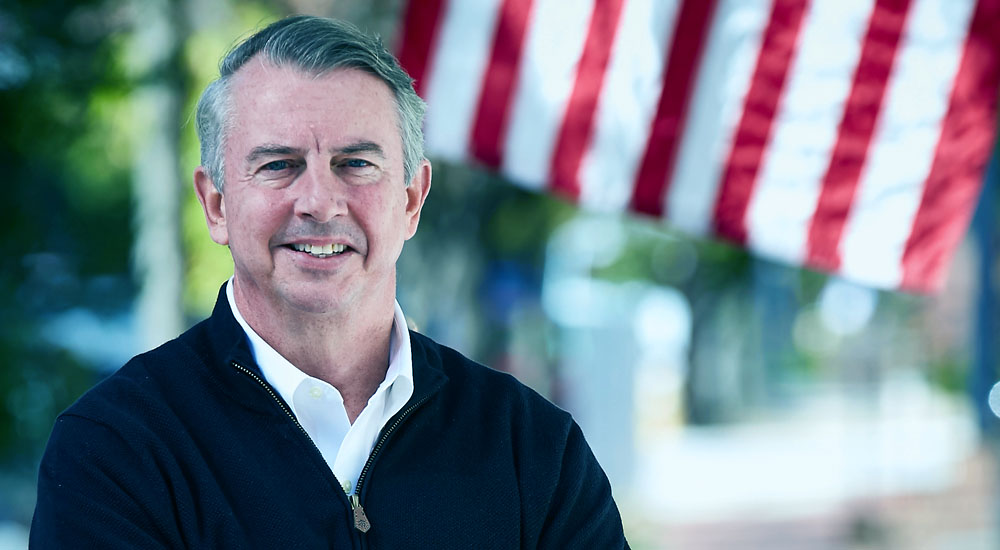After ousting Defense Secretary and four-star Marine General Jim Mattis, President Donald Trump is looking for a replacement to head the Pentagon. One man who the president is said to be considering is Reagan-era secretary of the Navy and former Democratic senator from Virginia, Jim Webb.
President Trump, enraged over Mattis’ highly critical resignation letter, pushed out the general two months earlier than he originally planned.
As Trump withdraws American troops from embattled Syria and Afghanistan, he may bypass traditional foreign policy-minded, hawkish Republican picks and decide to put the faith of the U.S. military into the hands of an outspoken opponent of the Iraq war. In the past, and even more recently, Webb has advocated to pull troops from the Middle East, also to become more aggressive in handling China.
In a 2015 Democratic primary debate, then-presidential contender Webb accosted Beijing’s military expansion in the South China Sea and cyberattacks on American institutions.
“If you want a place where we need to be in terms of our national strategy, a focus, the greatest strategic threat that we have right now is resolving our relationship with China,” Webb said in a report from the New York Times.
While President Trump has remarked that acting-Defense Secretary Patrick Shanahan, a former Boeing executive, may remain at the top spot at the Pentagon “for a long time,” other names have surfaced as potential replacements like Senator Tom Cotton (R-AR), Senator Lindsey Graham (R-SC), and former Missouri Republican senator Jim Talent.
Nevertheless, much like Trump, Webb was also critical of then-President Barack Obama’s efforts in 2015 to strike a deal to curtail Iran’s nuclear program.
“The end result of this could well be our acquiescence in allowing Iran to develop a nuclear weapon,” Webb said.
In August, Trump reimposed sanctions to force Tehran to address its nuclear proliferation, which includes ballistic missile tests. Heightened tensions between the U.S. and Iran were also amplified as Tehran began carrying out naval exercises in the Strait of Hormuz, designed to send a message to Washington over the sanctions.
In 1984, then as a member of the Republican Party, Webb joined the Reagan Administration as assistant defense secretary for reserve affairs. Three years later, while secretary of the Navy, Webb pushed for modernizing the fleet, but resigned one year later after refusing to agree to reduce the size of the branch. Although Webb proposed upping the Navy to 600 ships, his expansionist view is in line with President Trump’s more modest goal of a 355-ship fleet and the construction of highly-advanced Gerald R. Ford-class aircraft carriers to rule the seas.
If Webb is chosen, however, he will undoubtedly be grilled during his Senate confirmation hearing about potentially “insensitive” comments he has made in the past regarding military practices, foreign policy, and his experience on the field of battle.
During his short-lived 2016 presidential candidacy, Webb made headlines when he was asked who he was most proud to have as an enemy. He replied with an anecdotal tale from his time during the Vietnam War where was wounded twice and received the Navy Cross for his service and bravery.
“I would have to say the enemy soldier that threw the grenade that wounded me, but he’s not around right now to talk to,” Webb said.
Though, he reportedly walked away from the presidential primary after alleged contention with some of the Democratic Party’s political issues.
Nevertheless, apart from serving as a captain in the U.S. Marine Corps and becoming a Reagan-era Navy bureaucrat, Webb would bring his experience as senator from 2006 to 2012 to the Pentagon. Webb sat on the on Armed Services Committee, serving on the Airland, SeaPower, and Personnel subcommittees, leading the latter as chairman. He was also on the Senate Foreign Relations Committee, serving as chairman of the East Asian and Pacific Affairs Subcommittee, and as a member of the African Affairs, European Affairs, and Western Hemisphere, Peace Corps, and Narcotics Affairs subcommittees.
Following former Virginia Governor Jim Gilmore‘s nomination for the position of ambassador to the Organization for Security and Cooperation in Europe (OSCE), Webb would be the second presidential hopeful from the Commonwealth to join the Trump Administration.






